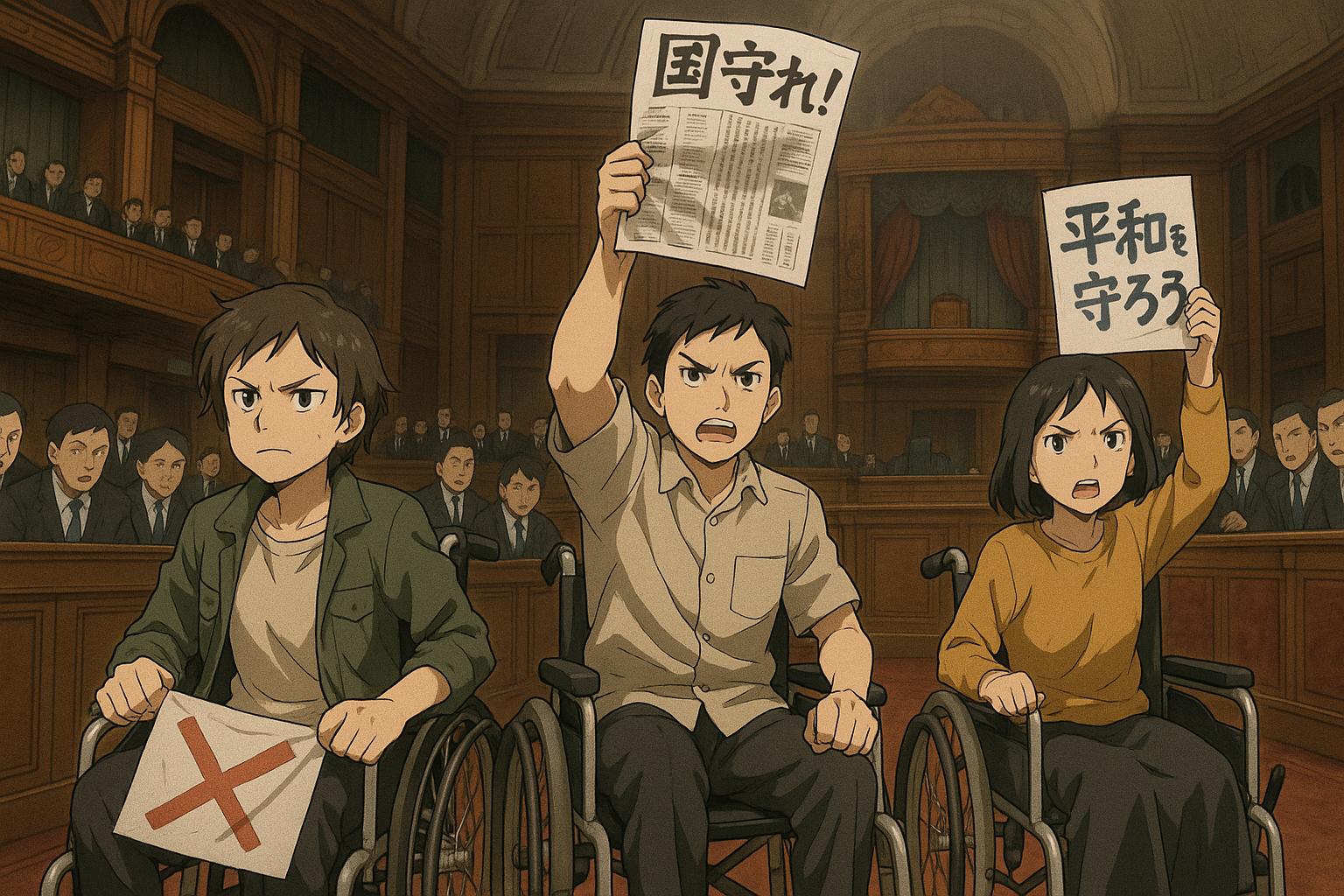Parliament has recently seen a troubling incident involving the confiscation of political materials, raising serious concerns about free expression and the treatment of activists within its halls. Three disabled activists—Paula Peters, Andy Mitchell, and a third individual, Anna—faced invasive security measures while attempting to observe a debate critical of government cuts to the Personal Independence Payment (PIP). This incident underscores an alarming trend of silencing dissent and curtailing activism in parliamentary settings, especially as the new Labour government pushes its austerity agenda.
Upon arrival, the activists were confronted by a security officer who confiscated a copy of The Department, a revealing book about the link between the Department for Work and Pensions (DWP) and numerous deaths among disabled benefit claimants. Political leaflets and badges deemed “too political” were also taken. This confiscation occurred despite the activists confirming that their materials did not breach parliamentary regulations, which only restrict certain defined materials, not general political discourse.
Anna expressed disbelief at their treatment, stating, “I have been an activist for a long time and I have never experienced anything like it before.” This incident starkly illustrates the reality for disability rights activists, as they sought to raise awareness about the impact of austerity measures on already vulnerable populations. The invasive questioning around their medication not only discouraged their activism but raises fears about the future of public discourse in such settings.
Peters, representing Disabled People Against Cuts (DPAC), voiced her frustrations over the criminalisation of their advocacy efforts, declaring, “This is not OK.” Their intentions to engage MPs on pressing PIP issues reveal the essential role of activism in holding government accountable for policies linked to tragic outcomes for disabled individuals. The group aimed to illuminate a broader narrative of suffering aggravated by the DWP, as highlighted in The Department, authored by John Pring, editor of Disability News Service.
The events unfolding at the House of Commons reflect a troubling trend of hostility toward dissenting voices in our political spaces. Peters aptly captured this frustration, asserting that the state seems intent on suppressing crucial discussions concerning the devastating consequences of austerity measures imposed by a Labour government too eager to balance budgets at the expense of the most vulnerable.
In a wider context, the significance of The Department recently came to the forefront through an activist initiative delivering 650 copies to every MP in the House of Commons. This push aimed to illuminate the human costs of benefit cuts and the severe implications of DWP policies, demonstrating a grassroots effort to ensure that citizens' voices reach their representatives. Contributions to this initiative from various organisations and notable figures have amplified its visibility in an environment increasingly hostile to such discourse.
Despite the incident at the parliamentary security gate, the activists' determined efforts continue to shed light on the harrowing human experiences behind cold policy decisions. The ongoing struggle of disabled individuals against oppressive government practices resonates deeply within the new Labour-led political landscape, yet MPs like Rachael Maskell and Diane Abbott, who have publicly condemned these proposed cuts, often fail to grasp the full repercussions of austerity on their constituents. Abbott cautioned against compromising the dignity of PIP recipients, while Maskell warned about the psychological toll of a system neglecting those it should serve.
The debate has showcased a chasm in perspectives—a chasm deepened by the Labour government’s aim to run a surplus at the expense of millions. Sir Stephen Timms, the minister for social security and disability, defended cuts as a necessary evil for PIP sustainability. However, this rationale has prompted significant backlash, as it dismisses the needs of those directly affected by such policies.
In sum, the incident involving the disabled activists not only unveils the increasing tensions between parliamentary authorities and activists but also accentuates the broader disastrous effects of government austerity measures on society's most vulnerable. The urgent need for transparency and accountability from the DWP becomes increasingly evident as stories of individual suffering resonate against a backdrop of calculated fiscal policies. As Anna compellingly concluded, their experiences reinforce a growing concern over the intensifying policing of activism and free speech—emphasizing the imperative for relentless advocacy and engagement in the political arena.
Source: Noah Wire Services
